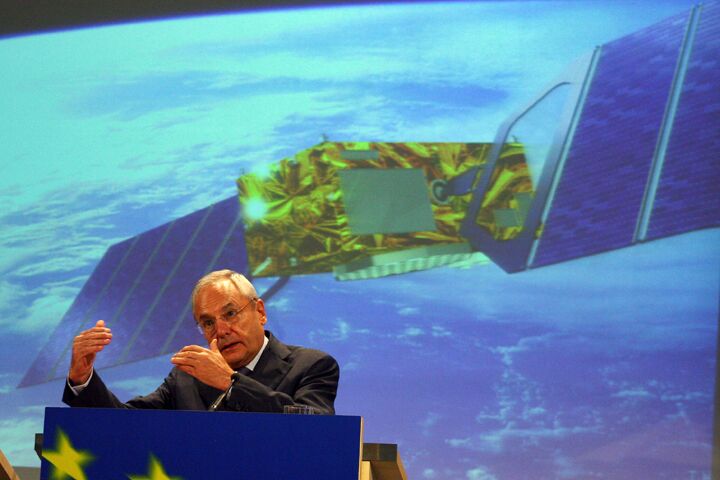
Europe: Galileo Back on Track
The European Union has finally decided on the future of its satellite navigation system: It’s a go. The target for completion has been pushed back to 2013 and the European taxpayer will now foot the bill for the project instead of private enterprise, but it will soon be able to move forward again.
The project, which would provide an accurate global positioning system independent of the United States, was previously scheduled for completion in 2008. However, the Galileo system floundered on rocky grounds when the consortium of private businesses that was to finance a large part of the project fell apart earlier this year.
Last Friday, the EU breathed new life into the project when it approved an extra €2.4 billion to be spent on the project. €1.6 billion of this will come from unused farm subsidies, and €600 million from money earmarked for other scientific endeavors. The only nation to oppose the plan was Germany.
This opposition does not mean Germany is against Galileo. On the contrary, it is one of its most ardent supporters. German Chancellor Angela Merkel was one of the first to defend the project after Galileo was criticized by the British Parliament on November 12. “Germany and France want this project,” she said. “We have agreed that we don’t want to put it off. We’re deeply convinced that Europe needs this system.”
Germany’s disagreement was more a matter of means than of ends. As the biggest contributor monetarily to Europe, it would have to pay a large part of the bill. It also wanted to ensure that German companies got a decent share of the contracts. In this respect, Germany largely got its way—a testament to its strong position inside the EU.
Merkel is not the only politician who has been vocal in her support for Galileo. French President Nicolas Sarkozy said that the program was “a major strategic target.” Italian Prime Minister Romano Prodi said it was of “fundamental importance” to the EU.
It is not just the EU that places a “fundamental importance” on its satellite navigation system. China’s Compass, or Beidou, system is set to become operational in 2008. Initially this satellite navigation system will only cover the region in and around China, but will eventually expand to cover the rest of the world. Russia is also developing its own system called glonass, with the aid of India.
Why are all these countries intent on developing their own navigation systems? Is one worldwide system not enough? The answer to these questions is very chilling.
As the Trumpet wrote in December 2003, “War is endemic to the past and continuing history of mankind. Consider and realize that major wars will never be controlled from this Earth’s surface again! From now on, all major wars will be controlled fromspace.“
A satellite navigation system is a strategic imperative for 21st-century warfare. This rush for a navigation system is but a small part of a growing global preparedness for war. For more information on this, read our article “Space Wars.”
